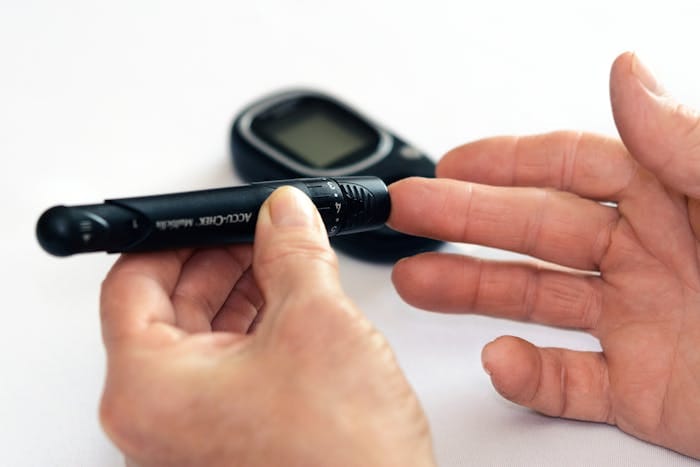Alcohol and Blood Sugar
Most people who drink alcohol do not think about the effect that it has on blood sugar levels.
However, you might be concerned about your blood sugar levels if you have diabetes.
Understanding exactly how drinking and alcoholic drinks may affect your body is incredibly important if you have diabetes.
This article will cover how your blood glucose level is affected by alcohol and what health problems this could present for you.
What Effects Does Alcohol Have on the Body?

The biggest effect that alcohol has on the body is as a depressant because it works by depressing the central nervous system.
Alcohol can affect every organ in your body. As soon as you consume it, it quickly enters the bloodstream and is absorbed by the stomach and the small intestine.
The liver breaks down most of the alcohol in your body, however, if there is excess alcohol, this will circulate throughout the body. Alcohol that is not broken down by the liver will be removed by the lungs, kidneys and skin through sweat and urine.
Drinking too much alcohol can harm the liver, causing chronic liver disease and can harm multiple other organs. It can also affect you if you have diabetes.
It is best to cut down on alcohol or stop drinking altogether to ensure you remain healthy. [1]
How Does Alcohol Affect Blood Sugar Levels?

People with diabetes or other blood sugar issues need to be careful when drinking alcohol since their overall health plays a large role in how they respond to alcohol.
Drinking alcohol regularly or heavy drinking can interfere with blood sugar levels and the hormones that are needed to maintain the correct, healthy blood sugar levels. [2]
Over a long period of time, drinking excessively can reduce how effective your insulin levels are. Normally, your liver releases glucose into your bloodstream when it is needed to keep normal blood sugar levels maintained.
However, when you drink, your liver cannot release glucose while it is processing excess alcohol. This leads to a drop in blood glucose levels, which can result in you becoming hypoglycemic or even suffering from severe hypoglycemia. [3]
Drinking without eating also greatly increases this risk, so it is important to only drink in moderation with food. An occasional drink may not have a large impact on normal blood glucose levels, especially if you drink with food. [4]
Other Risks when Drinking with Diabetes

Drinking alcohol, especially regularly and in excess, is not healthy for anyone. But people with diabetes should know there are extra risks to know about.
Alcoholic drinks, such as beer or mixed drinks that have been sweetened, contain a large amount of carbohydrates and sugar content, which can lead to raised blood sugar levels.
Alcohol can also have a lot of calories, which can result in weight gain. This can also make diabetes harder to manage.
Another risk is that if you are unwell, it may be mistaken for symptoms of drinking. If you are suffering from low blood sugar levels, the symptoms are very similar to those drinking so you could miss out on being treated properly.
Alcohol may also interfere with how your diabetes medications work, so you must consider this too.
Symptoms of Low Blood Sugar Levels
If you’re struggling with your alcohol habits and are feeling the effects of drinking with diabetes, you should seek help.
Symptoms may include:
- blurred vision
- fast heart rate
- nervousness
- headache
- feeling hungry
- shaking
- tiredness
- having trouble thinking clearly
- slurred speech
You should talk with your doctor about drinking alcohol if you have diabetes. But getting help at an alcohol rehab centre might be the best alternative if you find you cannot stop drinking or suffer from excessive alcohol intake, as you may have an alcohol addiction or alcohol dependence.
Contact Rehab Recovery today at 0800 088 66 86 for further advice and support.
Sources
[1] https://www.nhs.uk/live-well/eat-well/food-types/how-does-sugar-in-our-diet-affect-our-health
[2] https://pubmed.ncbi.nlm.nih.gov/3900125/




